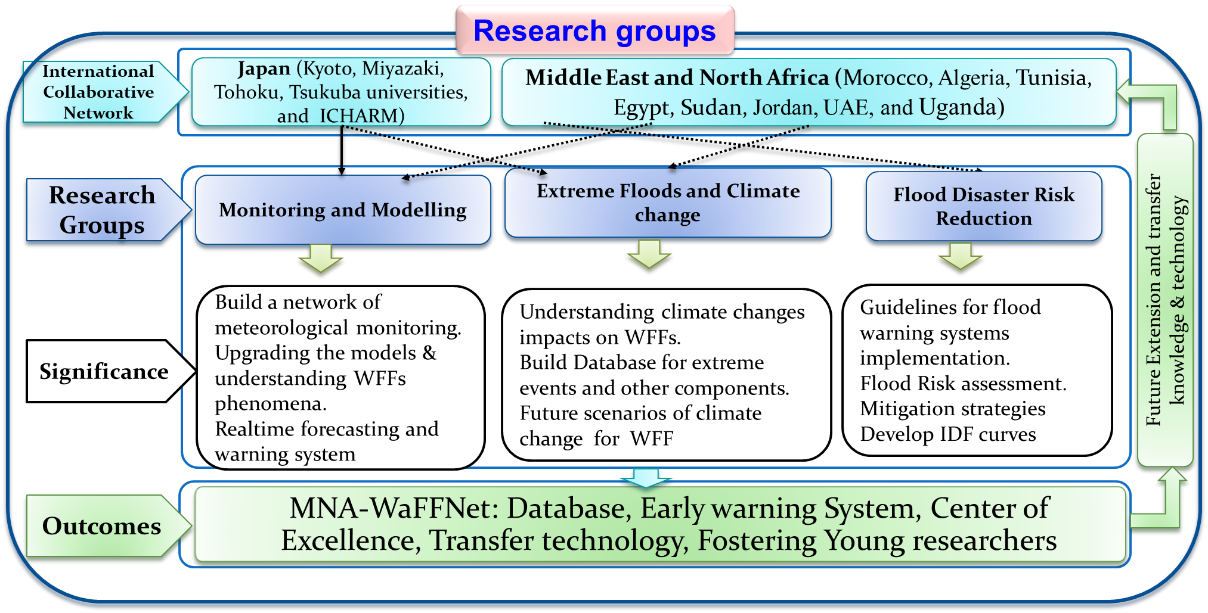The Project Research activities
The proposed network Mna-WaFFNet will connect our separated teams between Japanese counterparts and Middle East and North Africa counterparts to share achievements efficiently within the network members. This will resolt in an innovative framework for flash flood management and disaster risk reduction through exchanged research, training, involvement of ministries, NGO and industry. The challenges, research groups and expected outcomes of this unique moltilateral collaboration (Figs. 7.1, 7.2) can be linked within three main pillars following by “4.Networking and Training” as followings:
- Monitoring and Modelling
- Development of flash flood forecasting system using hydrological models and satellite-based rainfall
- Build a network for meteorological and morphologic data monitoring in MNA scarce data region.
- Monitor and Collect data for flash flood in MNA scarce data regions and analyzing it using Big Data technologies, sharing it using the Internet of Things IoT technologies.
- Developing various training materials for flood modelling and monitoring
- Extreme floods and climate changes
- Accomplishment of assessment of climate change impact and analysis the extreme events for Wadi Mejerda between Algeria and Tunisia and also Wadi Petra in Jordan
- Capacity building needs for leveraging data collecting techniques and data processing using big data tools
- Create a database for flash flood events in MNA region.
- Flood DRR and Mitigation
- Flood risk mapping and public awareness and education system in order to reduce the flash floods disaster risks in the target wadi system is developed
- Updated the design code based on the newly develop IDF curves
- Guidelines for flood warning systems implementation, mitigation, and improve flood risk knowledge.
- Networking and Training
- Fostering young researchers, and students from Japan and Mna countries to practice leadership, innovation, equip them with various tools for the competitive job market and enhance their career development.
- The Mna-WaFFNet network counterparts will try to raise additional funds from European fund as Horizon 2020 as the allocated fund is very limited to invite all network participant’s for instance young researchers and international experts.
- Publish data and research works to high ranking international journals and conferences
- Cooperate with other global flood programmes such as IPCC and to expand our collaborative network with other ASIAN countries.
- Train young researchers and stakeholders, policy makers, local communities through seminars and workshops. Training of researchers about the new technology and operational methods uses in other countries affected by floods

